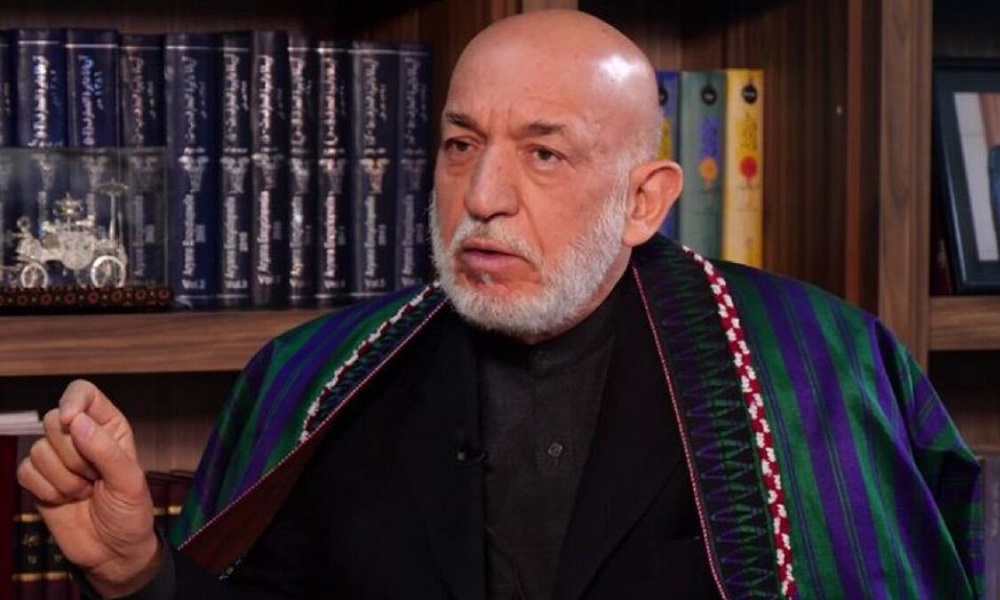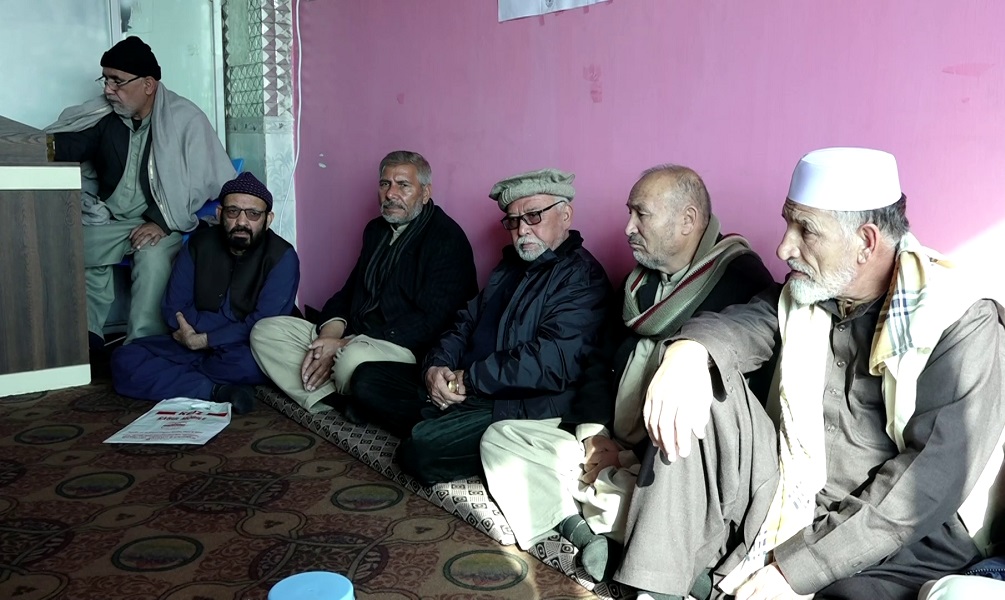Latest News
United Nations warily awaits Donald Trump’s return to power

The United Nations has been planning for the possible return of Donald Trump and the cuts to U.S. funding and engagement with world body that are likely to come with his second term as president.
There was a sense of "déjà vu and some trepidation" at the 193-member world body, said one senior Asian diplomat, as Republican Trump won Tuesday's U.S. election over Democratic Vice President Kamala Harris.
"There is also some hope that a transactional administration will engage the U.N. on some areas even if it were to defund some dossiers. After all, what bigger and better global stage is there than the United Nations?" said the diplomat, speaking on condition of anonymity.
A U.S. retreat at the U.N. could open the door for China, which has been building its influence in global diplomacy.
Trump has offered few specifics about foreign policy in his second term but supporters say the force of his personality and his "peace through strength" approach will help bend foreign leaders to his will. He has vowed to solve the war in Ukraine and is expected to give strong
support to Israel in its conflicts with Hamas and Hezbollah in Gaza and southern Lebanon.
Among the top concerns at the U.N. are whether the United States will decide to contribute less money to the world body and withdraw from key multinational institutions and agreements, including the world Heath Organization and the Paris climate agreement.
U.S. funding is the immediate worry. Washington is the U.N.'s largest contributor - with China second - accounting for 22% of the core U.N. budget and 27% of the peacekeeping budget.
A country can be up to two years in arrears before facing the possible repercussion of losing its General Assembly vote.
Trump came to power last time proposing to cut about a third off U.S. diplomacy and aid budgets, which included steep reductions in funding for U.N. peacekeeping and international organizations. But Congress, which sets the federal U.S. government budget, pushed back on Trump's proposal.
A U.N. spokesperson said at the time the proposed cuts would have made it impossible to continue all essential work.
"The U.N. secretariat has known that they could face a Trump comeback all year. There has been prudent planning behind the scenes on how to manage potential U.S. budget cuts," said Richard Gowan, U.N. director at the International Crisis Group.
"So (U.N. Secretary-General Antonio) Guterres and his team are not totally unprepared, but they know the next year will be extremely hard," he said.
Trump's team did not immediately respond to a query about his policy toward the U.N. after he takes office in January.
During his first term, Trump complained that the U.S. was shouldering an unfair burden of the cost of the U.N. and pushed for reforms. Washington is traditionally slow to pay and when Trump left office in 2021 the U.S. was in arrears about $600 million for the core budget and $2 billion for peacekeeping.
According to U.N. figures, President Joe Biden's administration currently owes $995 million for the core U.N. budget and $862 million for the peacekeeping budget.
"I don't want to pre-empt or speak about policies that may or may not happen, but we work with member states in the way we've always worked with member states," Guterres' spokesperson Stephane Dujarric told reporters on Wednesday.
In 2026, the U.N. Security Council will choose Guterres' successor, a decision in which the Trump administration will hold a veto power.
'GREAT NEWS FOR CHINA'
During Trump's first term, he was critical of the United Nations and wary of multilateralism. He announced plans to quit the World Health Organization, and pulled out of the U.N. Human Rights Council, the U.N. cultural agency UNESCO, a global climate change accord and the Iran nuclear deal.
When Biden succeeded him in 2021, he rescinded the U.S. decision to withdraw from the WHO and returned the U.S. to UNESCO and the climate agreement. Trump's campaign has said he would quit the climate deal again if he won office.
"It will survive. But, of course, it will probably survive severely undermined," Guterres told Reuters in September of a second withdrawal from the climate pact by Trump.
Ahead of the U.S. election, a senior European diplomat said a Trump win would be "great news for China," recalling that during Trump's first term "the Chinese influence in the U.N. increased a lot because it was an open bar for the Chinese."
The diplomat, speaking on condition of anonymity, said that if Trump again cuts U.N. funding and withdraws from international pacts "it will just give China the opportunity to present itself as the supporter number one of multilateralism."
U.S. funding for some other U.N. agencies is also in question. One of the first moves by the Trump administration in 2017 was to cut funding for U.N. Population Fund (UNFPA), the international body's agency focused on family planning as well as maternal and child health in more than 150 countries.
Trump's administration said UNFPA "supports ... a program of coercive abortion or involuntary sterilization." The U.N. said that was an inaccurate perception. Biden restored U.S. funding for UNFPA.
If Trump again cuts funding, UNFPA warned that "women will lose lifesaving services in some of the world's most devastating crises" in places like Afghanistan, Sudan and Ukraine.
Under Trump's first presidency, the U.S. also opposed long-agreed international language on women's sexual and reproductive rights and health in U.N. resolutions over concern that it would advance abortion rights.
A senior African diplomat, speaking on condition of anonymity, summed up the impending return of Trump for multilateralism and the United Nations: "The heavens help us."
(Reuters)
Latest News
G7 envoys urge national dialogue for lasting stability in Afghanistan

Special Representatives of the Group of Seven (G7), including the European Union, have emphasized the importance of a national dialogue for achieving long-term stability in Afghanistan.
Following a meeting on Afghanistan in Geneva, Switzerland, G7 special envoys issued a joint statement calling for the restoration of women's rights and urging the Islamic Emirate to fight terrorism.
The statement reads: "Achieving sustainable peace and stability requires credible governance that represents all segments of Afghan society."
The representatives also expressed concern over the IEA’s decision to ban girls from attending medical institutes, warning that it will have devastating consequences for the citizens, particularly mothers and their infants.
The statement described this ban as unacceptable and called on the Afghan authorities to lift it immediately.
Earlier, countries and international organizations had called for the removal of restrictions on the education and employment of women and girls, emphasizing the need for a national dialogue.
In response to these concerns, IEA has repeatedly stated that it will not allow interference in the internal affairs of the country.
The G7 special envoys also expressed their concern about the recent terrorist attacks in Kabul and the surrounding region, warning that terrorism remains a serious threat to Afghanistan's security. They confirmed the actions of the IEA against Daesh but stressed the need for more decisive measures.
Latest News
Afghanistan’s bright future lies in educating girls: Karzai

Hamid Karzai, the former president of Afghanistan, says the demand of Afghan girls for the reopening of schools and universities is their fundamental right and adds that Afghanistan cannot have a bright future without ensuring access to education for girls.
In a statement on his X (formerly Twitter) account, Karzai said: "The demand and voice of our country’s girls for education and knowledge is a rightful one and crucial for a prosperous Afghanistan."
He further emphasized, "Empowering the youth—both girls and boys—is the only way to achieve self-reliance, break the cycle of poverty, and drive the development and prosperity of society."
Karzai underscored that education is vital for Afghanistan’s growth and development, expressing hope that the doors of schools and universities for girls will be reopened as soon as possible.
Latest News
IEA to set up special courts to address pensions

Mawlawi Hebatullah Akhundzada, the supreme leader of the Islamic Emirate of Afghanistan (IEA), has issued a decree to establish special courts to address pensions, Bakhtar news agency reported on Saturday.
According to the decree, the courts must confirm and process pensions in accordance with Sharia and law.
Pensioners have repeatedly voiced concern over delay in payment, saying that their financial challenges are growing.
Earlier this year, IEA's supreme leader banned money being deducted from salaries of government employees for pensions.
He also requested information on the tenure of employees and the total amount deducted from salaries for pensions.
-

 Regional5 days ago
Regional5 days agoBomb kills chief of Russian nuclear protection forces in Moscow
-

 Sport5 days ago
Sport5 days agoATN once again seals deal to broadcast upcoming IPL across Afghanistan
-

 Sport5 days ago
Sport5 days agoLanka T10: All three matches abandoned due to rain
-

 World5 days ago
World5 days agoAt least 100,000 bodies in Syrian mass grave, US advocacy group head says
-

 Latest News5 days ago
Latest News5 days agoIndia hoping to import coal and marble from Afghanistan
-

 Latest News5 days ago
Latest News5 days agoTrump says he would have pulled out of Afghanistan with ‘dignity and strength’
-

 Sport4 days ago
Sport4 days agoZimbabwe’s opening ODI against Afghanistan abandoned
-

 Latest News5 days ago
Latest News5 days agoFuel prices rise in Herat as winter approaches






















